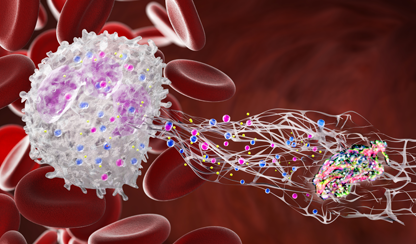02 November 2023
Media release

Can we better capture the hidden risk of cardiometabolic diseases and inform lifestyle interventions?
Developing metabolic scores that better capture the hidden risk of cardiometabolic diseases not explained by body mass index (BMI) may provide a more precise tool to monitor dietary and lifestyle interventions, say researchers from the Baker Heart and Diabetes Institute.
That is the focus of a new paper which addresses the issue of identifying individuals who may be a normal weight but metabolically unhealthy and conversely, ‘metabolically healthy obese’ people.
In this Nature Communications paper by Habtamu B. Beyene and colleagues, they introduce the concept of a metabolic BMI score to evaluate metabolic health beyond just weight, providing a far more detailed and precise picture of how someone’s metabolism is working and their related metabolic health.
This comprehensive picture of how our body metabolises the food we eat and what is does with that — burns it as energy, stores it as fat or changes it into other compounds — is critical because dysregulation in metabolism underpins many chronic diseases including obesity, type 2 diabetes, cardiovascular disease and age-related dementia.
Traditionally, a person’s metabolic health is calculated using much blunter instruments like waist circumference or body mass index (BMI).
For the past 60 years, clinicians have been focused on just three lipids (fats in our body) to assess disease risk — low-density lipoprotein (LDL) high-density lipoprotein (HDL) and triglycerides.
But with rapid knowledge and technological advances, lipidomic profiling now gives us access to so much more detail.
The strong associations of lipids and other metabolites with BMI and our ability to now measure hundreds of lipids (575 in this study) has allowed us to develop this lipidomic-based model.
Senior author, Professor Peter Meikle says the research demonstrates how a metabolic BMI score is an important biomarker of metabolic health and a potential tool to monitor dietary and lifestyle interventions to reduce cardiometabolic risk.
“From here, the next step is to look at how this score might be integrated into healthcare practice to inform lifestyle interventions,” Professor Meikle says.
“We are currently working with industry to integrate metabolic BMI into precision health practices. We think this is a really exciting development as it is paving the way to intervene before disease strikes,” he says.
For further information or to organise interviews please contact:
Tracey Ellis
T: 03 8532 1514
M: 0433 781 972
E: tracey.ellis@baker.edu.au





